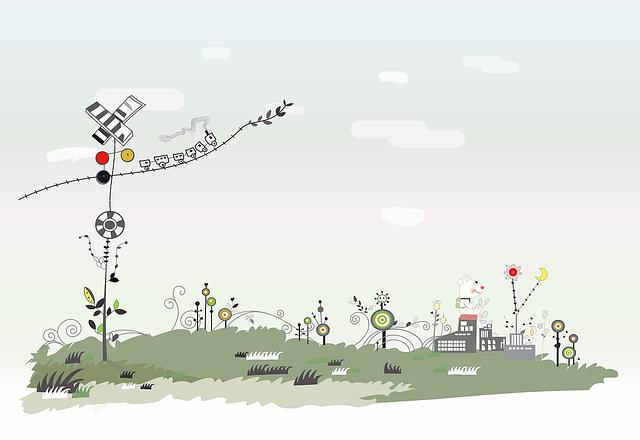Transforming Pakistan’s Future: Key Public Policy Challenges Ahead
As the dawn of a new era breaks over the vibrant landscape of Pakistan, the nation stands at a crucial crossroads, poised for transformation. With a population bursting with potential and a rich tapestry of cultures and traditions, the country is ready to embrace change. However, this journey towards a brighter future is laden with challenges that demand astute public policy responses. From economic resilience and education reform to environmental sustainability and healthcare accessibility, the complexities of modern governance present a formidable test for policymakers. In this article, we delve into the key public policy challenges that lie ahead, exploring the paths that can lead Pakistan towards a more prosperous and equitable future. As we navigate these intricate issues, it becomes evident that the collective choices made today will shape the destiny of generations to come.
Shaping Education Reform for a Skilled Workforce
Revamping education to meet the needs of a rapidly changing world is crucial for cultivating a skilled workforce. As Pakistan faces an evolving job market, educational institutions must prioritize curricula that align with industry requirements. This transformation can be achieved through a collaborative approach involving government agencies, private sectors, and educational institutions. By focusing on hands-on training, curricular updates, and applied learning, the education system can better prepare students for the demands of future employers.
To facilitate this transition, critical policy interventions are necessary. These may include:
- Incentives for vocational training: Encouraging students to pursue technical fields through scholarships and job placements.
- Public-Private Partnerships: Leveraging resources and expertise from businesses to enhance the educational infrastructure.
- Continuous professional development: Ensuring teachers and educators receive training in the latest methodologies and technologies.
By establishing a framework that supports these initiatives, Pakistan can create a robust educational environment that not only meets the current needs but also anticipates future trends, ultimately leading to a competitive workforce.

Navigating Economic Diversification in a Global Landscape
In today’s interconnected world, the need for countries like Pakistan to embrace economic diversification has never been more pressing. The traditional reliance on a limited set of industries can make the economy vulnerable to external shocks, fluctuations in global markets, and changing consumer demands. To effectively navigate these challenges, policymakers must prioritize the development of a multi-faceted economic framework that encourages innovation and supports the growth of emerging sectors. This involves not only investing in technology and infrastructure but also fostering a culture of entrepreneurship that empowers local businesses to thrive.
Effective public policy can play a critical role in this diversification journey by addressing several key areas:
- Education and Skill Development: Aligning educational programs with market needs to equip the workforce with the necessary skills.
- Investment Incentives: Creating a conducive environment for both domestic and foreign investment in new sectors.
- Regulatory Reforms: Streamlining regulations to facilitate ease of doing business.
- Trade Relations: Expanding trade agreements to open up global markets for diverse products and services.
To visualize the potential economic transformation, consider the following table that outlines key sectors poised for growth:
| Sector | Growth Potential | Policy Focus |
|---|---|---|
| Renewable Energy | High | Investment in green technology and infrastructure. |
| Information Technology | Moderate | Encouraging tech startups through funding and mentorship. |
| Agribusiness | High | Advancing agri-tech and ensuring sustainable practices. |

Strengthening Governance and Institutional Integrity
To chart a progressive path for the nation, it is imperative to bolster the frameworks of governance and institutional integrity. Transparent decision-making processes, efficient public administration, and robust accountability mechanisms are vital ingredients in cultivating trust among citizens and stakeholders. Initiatives aimed at fortifying the rule of law can promote civil rights, protect individual freedoms, and ensure that justice is accessible to all. Moreover, enhancing public sector efficiency through digital transformation can significantly reduce bureaucratic bottlenecks, thereby amplifying service delivery across various sectors.
Key focus areas that require strategic attention include:
- Strengthening anti-corruption measures: Implementing stricter penalties and fostering whistleblower protections can deter misconduct.
- Empowering local governance: Decentralization of powers can give communities a stronger voice in their own development.
- Promoting open data initiatives: Transparency in government data can enhance citizen engagement and foster accountability.
To illustrate the impact of these strategies, consider the following table that outlines key metrics for success:
| Metric | Current Status | Target |
|---|---|---|
| Corruption Perception Index | 30/100 | 60/100 |
| Local Government Empowerment Score | 40% | 70% |
| Public Engagement Rate | 25% | 50% |

Fostering Sustainable Development through Climate Action
In the pursuit of a more resilient future, Pakistan faces a myriad of challenges that interconnect climate action with sustainable development. Economic growth must align with environmental sustainability, necessitating a paradigm shift in policy-making. By prioritizing investments in renewable energy, enhancing water management systems, and promoting sustainable agricultural practices, Pakistan can mitigate the adverse effects of climate change while fostering economic resilience. The integration of green technologies in urban planning is crucial, paving the way for smart cities that utilize resources efficiently and reduce carbon footprints.
Additionally, effective community engagement is paramount in driving sustainable initiatives. Public awareness campaigns must focus on the importance of conservation and responsible resource usage. Establishing partnerships with local organizations can empower communities to take ownership of their environment. A national framework encouraging collaborative governance can streamline efforts across different sectors. Below is a summary of key policy areas vital for balancing development and climate resilience:
| Policy Area | Priority Actions |
|---|---|
| Renewable Energy | Investment in solar, wind and hydropower projects |
| Water Management | Implementing efficient irrigation techniques and rainwater harvesting |
| Sustainable Agriculture | Promoting organic farming and agroforestry practices |
| Urban Development | Designing eco-friendly infrastructure and public transportation systems |
Wrapping Up
As Pakistan stands at the crossroads of opportunity and challenge, the path toward a transformative future hinges on our collective ability to navigate the complex landscape of public policy. The challenges outlined in this discourse are not mere obstacles; they are calls to action. Policymakers, civil society, and citizens alike must embrace collaboration and innovation to create a resilient framework that addresses economic disparity, environmental sustainability, and social equity.
The journey ahead requires unwavering commitment, strategic foresight, and the courage to adapt in a rapidly changing world. Embracing these key challenges as stepping stones rather than roadblocks will be pivotal in shaping a Pakistan that thrives not only today but for generations to come.
As we reflect on these pressing issues, let us remember that the future of Pakistan is not a distant vision but a tangible reality waiting to be crafted. Together, we have the potential to reimagine what is possible, paving the way for a society that is not only resilient but also vibrant and inclusive, where every citizen can contribute to and benefit from the nation’s progress. The time for action is now; let us take the reins and steer our nation toward a brighter tomorrow.



